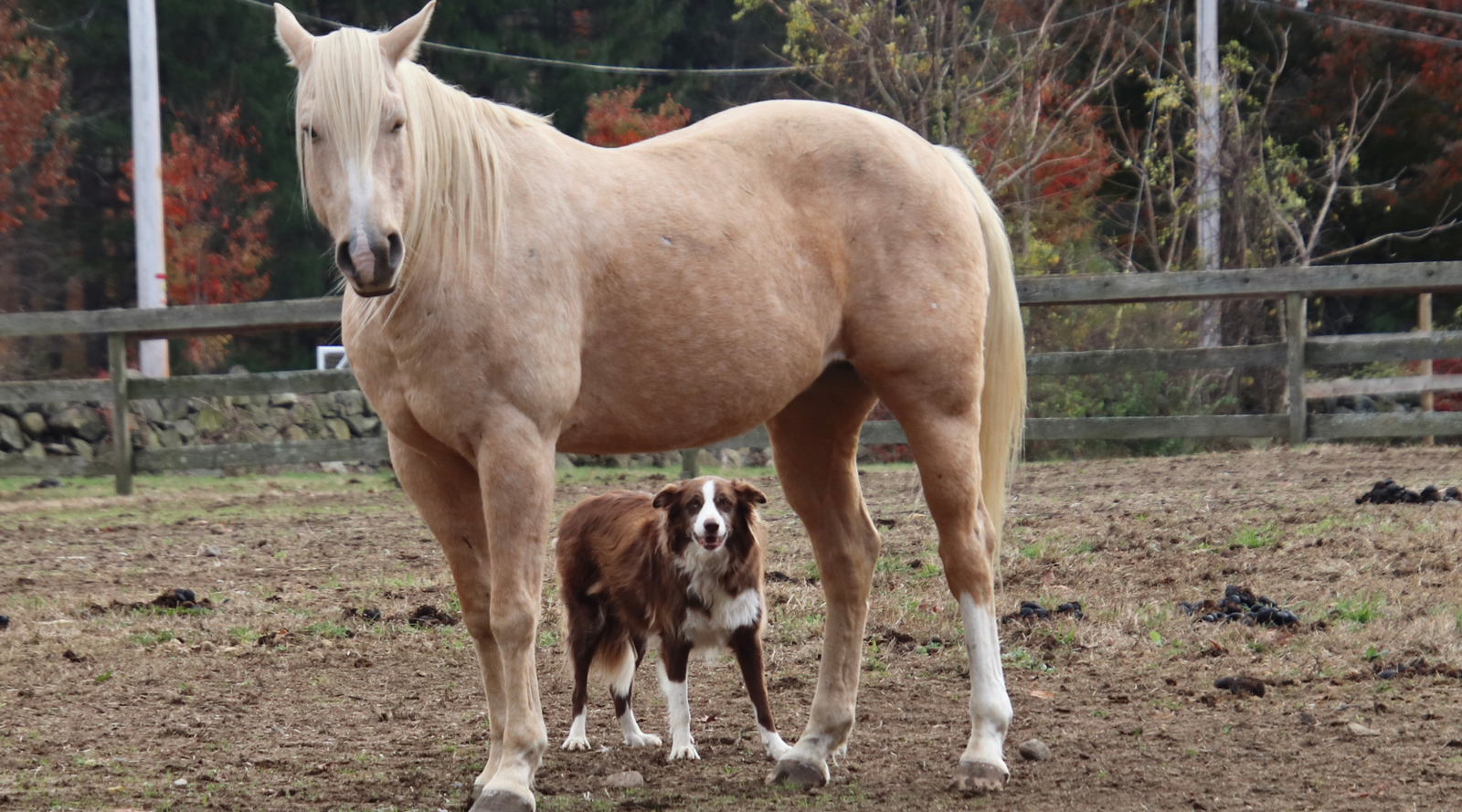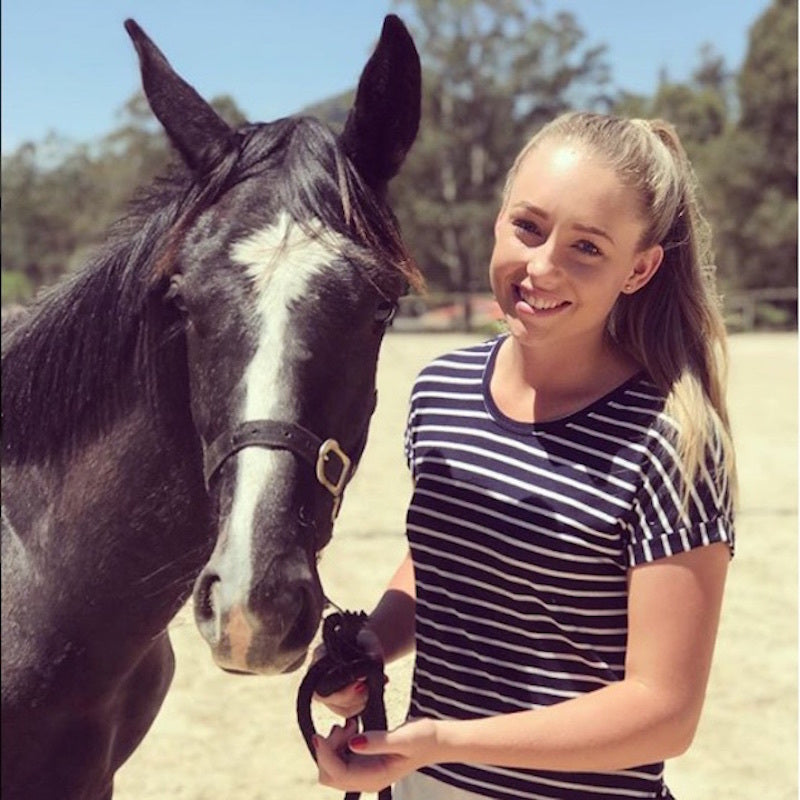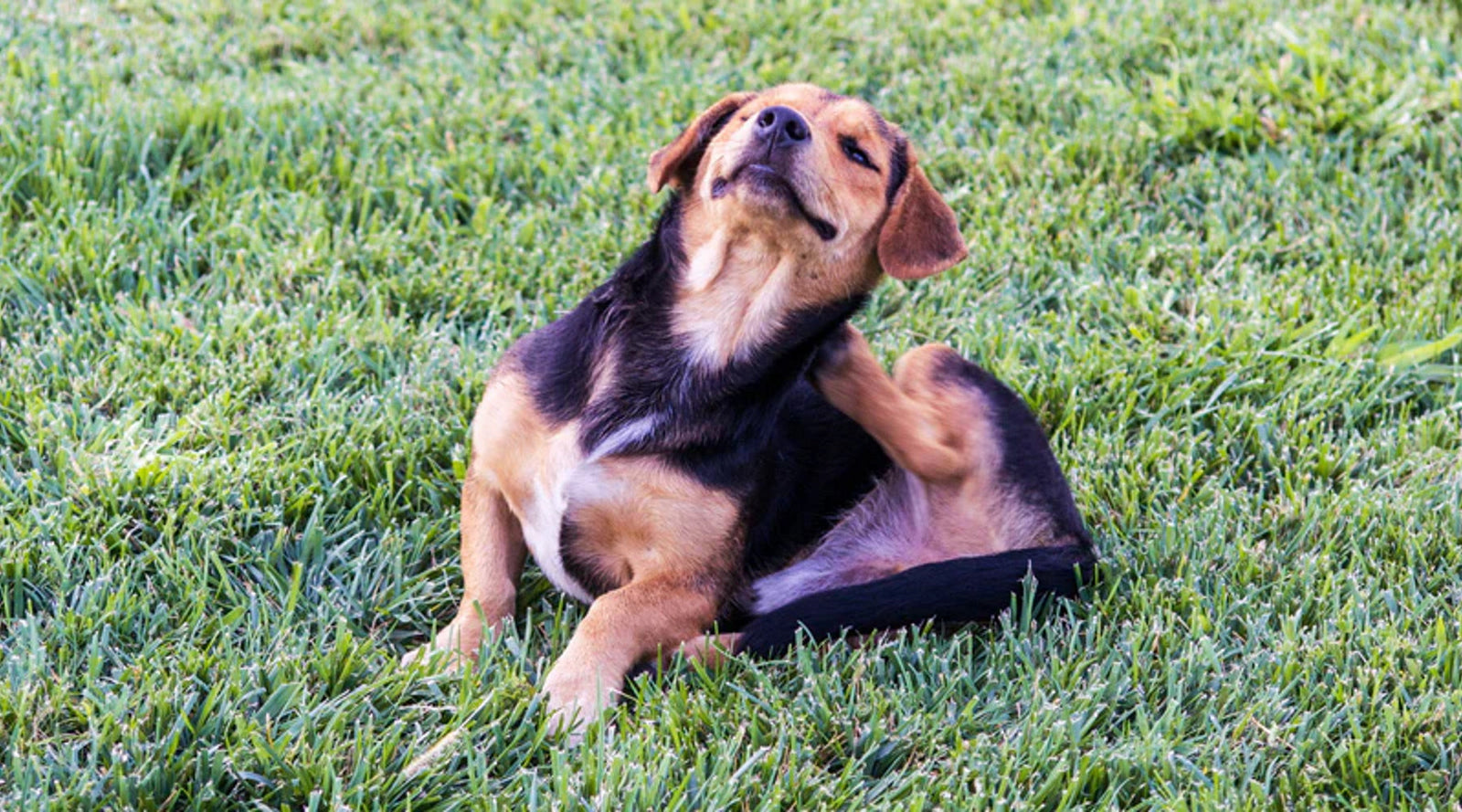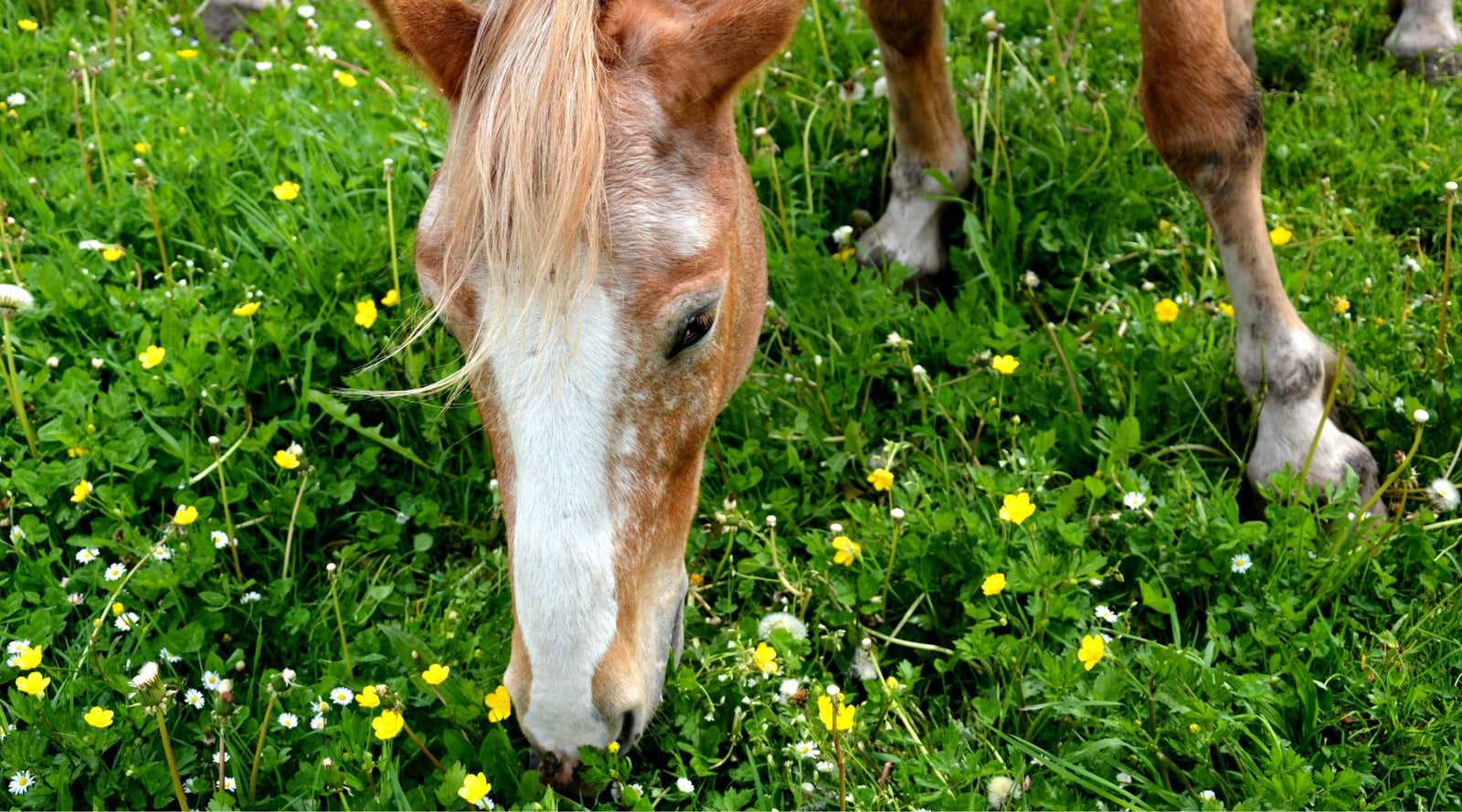Triple Hippo Rewards points are now available on all purchases made before midnight 24th February 2026.
Triple Hippo Rewards points are now available on all purchases made before midnight 24th February 2026.
Horse & Rider
Natural Support for Stiff & Sore Joints: Tips for Horses, Dogs, Cats, and People
by Fiona Lane April 03, 2024

As the colder, wetter weather approaches, it's normal for older horses, dogs, cats, and humans to experience stiff, sore, and achy joints. In this blog post, we look at how to tell if your horse or pet needs joint support or help with mobility, and how to provide that support naturally. If it's the humans in your life that experience joint stiffness, we've included a section at the end of this post with links to the remedies we make that can help to alleviate joint aches and pains for people.
How to know if your horse, dog or cat has joint stiffness
Our animals can’t tell us what’s wrong, and so rely on us to notice any changes in their mobility or behaviour that might be caused by minor joint discomfort. As always, we recommend talking to your vet if you feel your horse, dog or cat is in pain or that their symptoms require further investigation for a more serious condition.
Changes in mobility
Horses:
An otherwise healthy horse might show a reluctance to move, not want to track up, favour one rein and canter lead and take longer to warm up when working. They may also be more hesitant than usual when loading in and out of the float/truck, struggle to get up and spend more time standing if getting up and down off the ground is causing discomfort.
Dogs:
Your pet might have difficulty going up and down stairs or getting in and out of the car. They may circle more before lying down in their beds or spend longer in their beds to avoid getting up. Their paws might also seem to ‘slip’ while moving.
Cats:
You may also notice your cat is more hesitant when climbing and jumping, and is instead looking for easier ways to get up and down from their usual spots.
Altered behaviour
Horses:
Discomfort can lead to irritability, restlessness and increased vocalisation – particularly when being moved or being prepared for work.
Cats & Dogs:
They may be more irritable than usual and show stiffness in the legs after resting or sleeping. They may not enjoy being picked up or patted in certain places and start licking, chewing or biting the affected area.
Physical signs
Horses:
You may notice slight swelling or a change in the shape of the joint, as well as localised heat around the affected joint.
Cats & Dogs:
They may be more lethargic than usual and be less able to groom themselves in those harder to reach places, or start compulsively licking a front leg because they can't get to the painful area on their back or hind legs. A vet examination is recommended if your pet does appear to be licking an easy to reach spot for not apparent reason.
Limping or favouring certain limbs
Horses, Cats & Dogs:
This could indicate joint stiffness or discomfort but may also be caused by other issues that require further investigation by a vet.
How to support a horse experiencing joint stiffness
If your horse is experiencing joint stiffness, there are several ways you can provide support and alleviate their discomfort. Consider the following tips to help your equine friend stay comfortable and mobile:
- Provide warmth: fresh hay and a good quality rug.
- Allow time to warm up before work: allow time for a gentle walk before mounting.
- Exercise them regularly: mild exercise keeps the muscles and tendons that stabilise the joint strong.
- Manage their weight: excess weight places significant strain on your horse’s joints causing more wear and tear.
- Keep up the hoof care: talk to your vet or farrier about ways to ensure even weight loading through the joints, reducing unnecessary strain on joints, ligament and tendons.
- Use our natural remedies:
-
- Joints Plus Equine: supports horses experiencing stiff, sore or minor inflammation due to age or as a result of exertion during shows and events.
- Liver Plus Equine: supports healthy liver function which in turn supports a healthy immune system in horses.
- Performance Plus: supports horses after periods of strenuous exertion including the effects of jarring from hard ground, dehydration, muscle strain and minor inflammation.
- Chilled Out Horse: a natural calmative for horses experiencing low mood, irritability or restlessness.
How to Support a Dog or Cat experiencing joint stiffness
Supporting a dog or cat experiencing joint stiffness is crucial for their comfort and well-being, especially as they get older. Here are some practical ways to help your furry friend manage their discomfort and maintain their quality of life:
- Keep them warm: provide a warm and cozy sleeping area, using wheat bags, heating pads or a hot water bottle to provide extra warmth.
- Adjust exercise routines: take your dog for shorter walks, and focus on lower impact exercises and games.
- Raise food and water bowls: elevating these off the ground provides easier access for animals experiencing stiff and sore joints.
- .Consider a pet ramp: make it easier for dogs to get in and out of the car, and for cats to access their favourite sunny spots.
-
Use our natural remedies:
- BioPet Joints: supports a healthy immune response to joint complaints caused by degenerative wear and tear or injury.
- Weak Hind Legs: provides support for animals experiencing weakness in their hind quarters
- Kidney & Liver Health: professionally formulated to support kidney & liver health and is safe for use alongside vet prescribed medications.
- Senior Drops – Pets: an all-round remedy to support ageing pets.
- BioPet Relax: a natural calmative for dogs and cats experiencing low mood, lethargy or irritability.
If you own a senior pet, read this blog post for more tips on helping senior pets live their best lives.
Remedies for People experiencing stiff or aching joints
We also make a range of remedies to help people experiencing aches, pains, and minor joint discomfort:
- Joints Plus – People: an all-round joint supporting remedy that can be used as a preventative, or when symptoms arise.
- Sports Plus - Athletes: for joint inflammation, muscle strain, dehydration and the effects of jarring brought on by exertion
- Backs Plus: for everyday back discomfort and stiffness
- Knees Plus: support for those with symptoms of arthritis
- Hips Plus: supports people experiencing minor hip pain or inflammation. This remedy can be customised based on the level of discomfort being experienced.
- Sleep Plus: assists with getting to sleep, or getting back to sleep after waking in the night.
We hope these tips and remedies will help you, your horses, dogs and cats stay healthy and pain-free this winter!
For more tips and advice on supporting horses and pets through winter, read these blog posts:
General Disclaimer: Always follow dosing instructions. Our remedies are formulated to support the natural immune system of horses, pets, livestock, and people. We do not claim to treat, medicate, or cure any health conditions. If you are worried an animal may be in pain or suffering, please contact your veterinarian.




